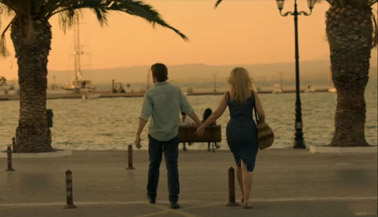|
|
Movie Review: Before MidnightBy Matthew HuntleyJune 19, 2013
One might say the major conflict in Before Midnight is whether Jesse and Celine will make it to the end of the day and still be together. After Jesse puts his 14-year-old son Hank (Seamus Davey-Fitzpatrick) on a plane back to his ex-wife in Chicago, he’s saddened by the fact he lives so far away and can’t be with Hank during his crucial formative years. He hints at the possibility that he, Celine and the girls should move to America, but Celine won’t hear of it. She and Jesse’s ex-wife apparently have a tumultuous history, plus she’s been offered a great job in Paris. We also get the sense she doesn’t want to move purely out of principle - she loathes the idea she should be expected to drop everything and follow Jesse, fearing she’ll become just another servile housewife. Although, to be fair, Jess doesn’t expect this of her. The film is filled with engaging dialogue, whether it’s about broad, significant subjects like aging, death and fidelity, or more trivial topics like who cleans up around the house. Waiting in the wings is Jesse and Celine’s doomed conversation about moving, which they’ve been putting off as they walk to a hotel to spend their final night in Greece together. We listen intently and the actors do a remarkable job of making their interactions feel random, organic and genuine. I know the “Before” films aren’t for everybody. Many viewers claim nothing happens in them and they’re ultimately inconsequential. But I disagree and think those kinds of reactions are based on the idea that stories and characters must always be bound by a plot that ties them together with a definite beginning, middle and end. There’s nothing wrong with a traditional structure, except when it’s too traditional, and I think films like Before Midnight are refreshing because they feel free from the shackles of a routine architecture. The characters can pretty much do and talk about whatever they want at any given time, which makes the entire filmic experience more spontaneous. I’m not suggesting any film can or should follow around characters talking about any old subject. What makes Before Midnight special is that director Linklater and stars Hawke and Delpy are able to make what Jesse and Celine talk about interesting, topical and heartfelt. They teach and remind us about the complexity of relationships and the uncertainties associated with them, which serves as useful reiteration about who we are and contributes toward our continued development as people.
|

|
|
|

|
Thursday, October 31, 2024
© 2024 Box Office Prophets, a division of One Of Us, Inc.


